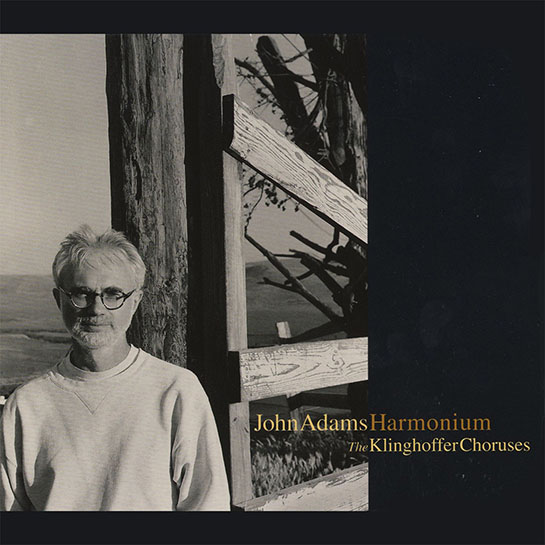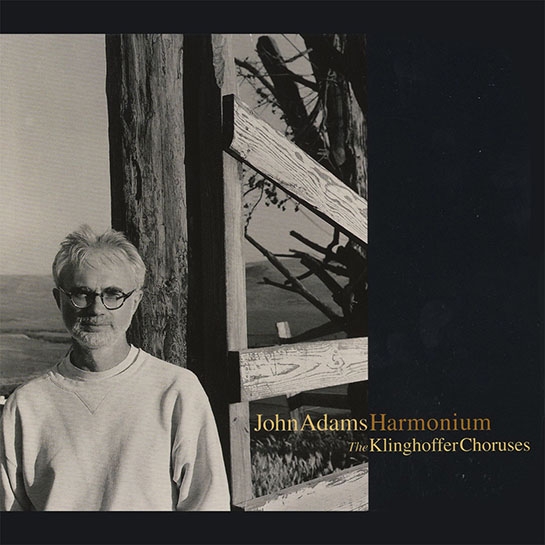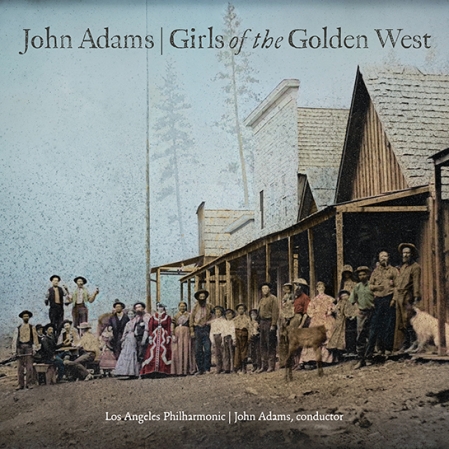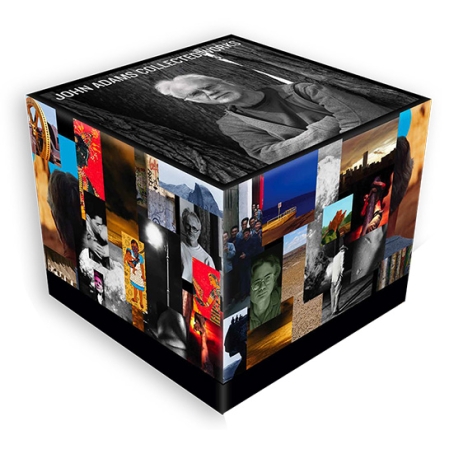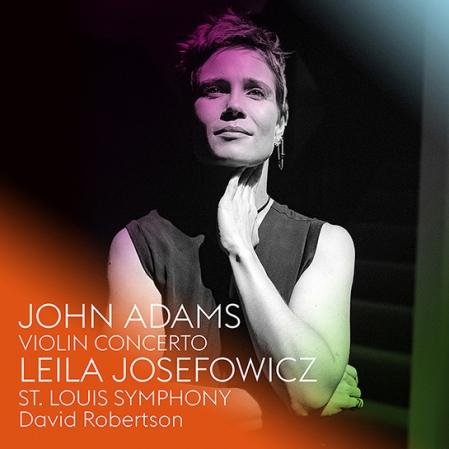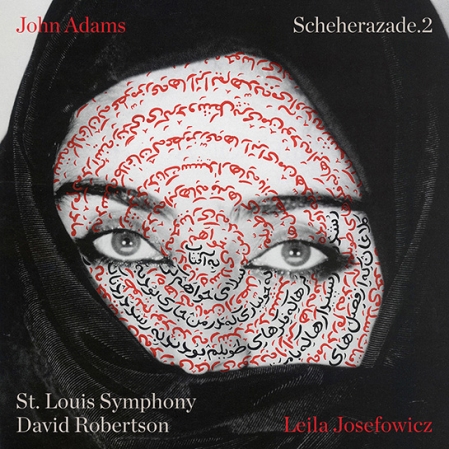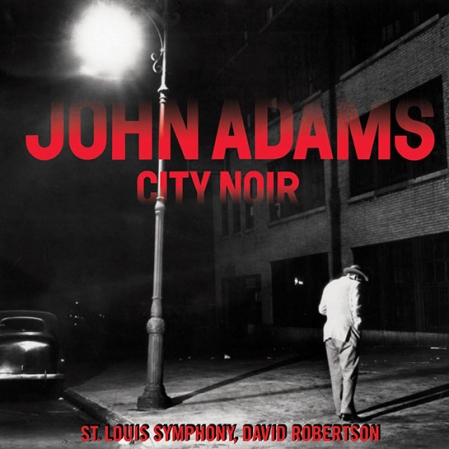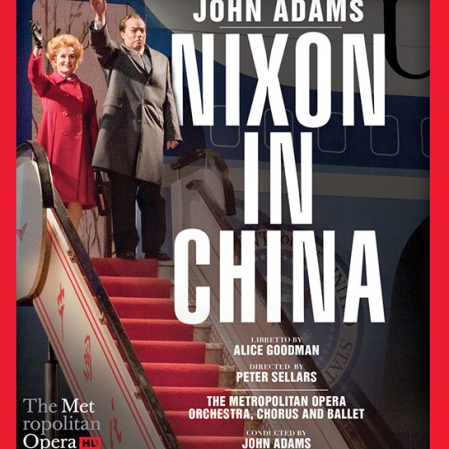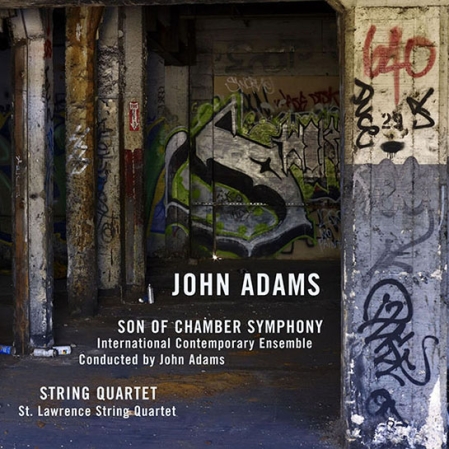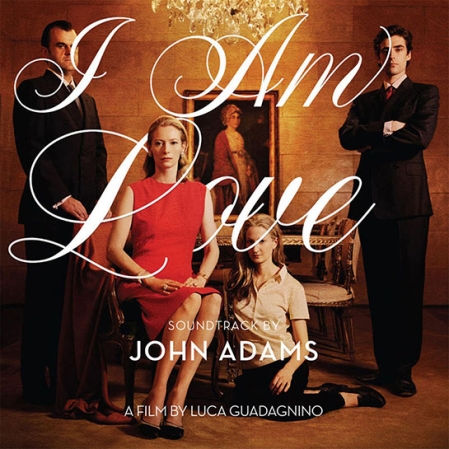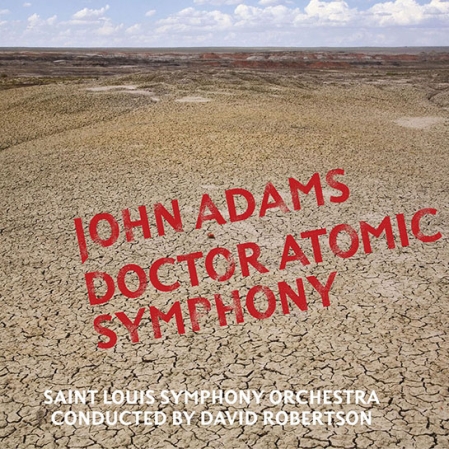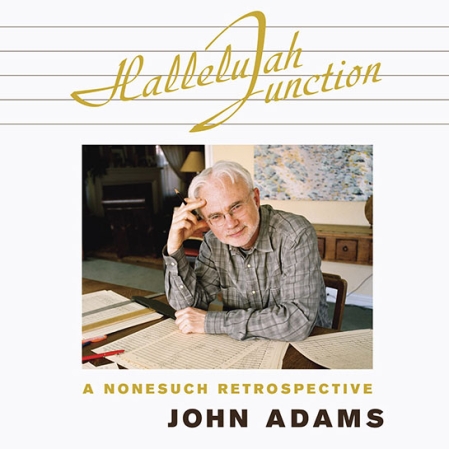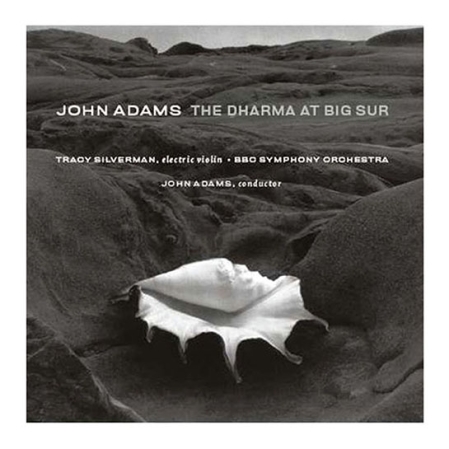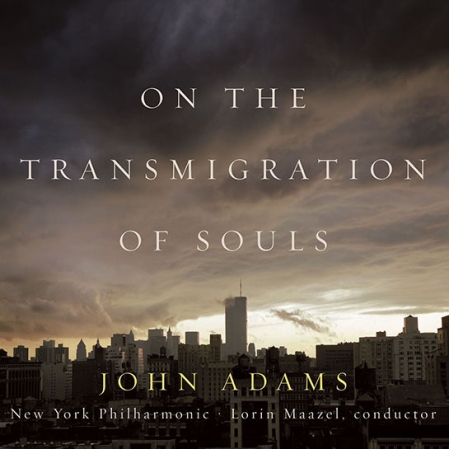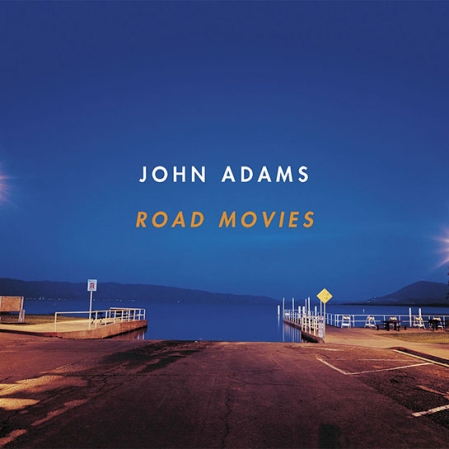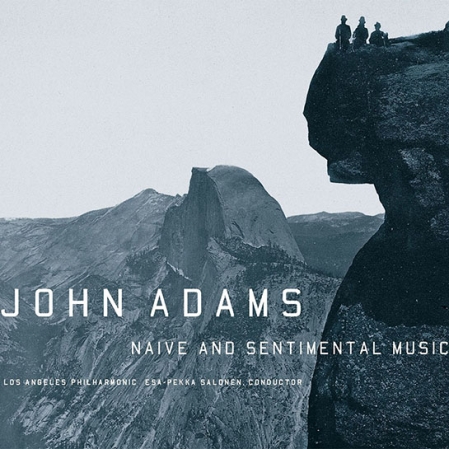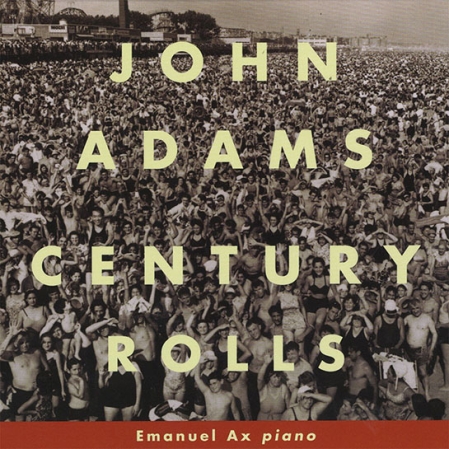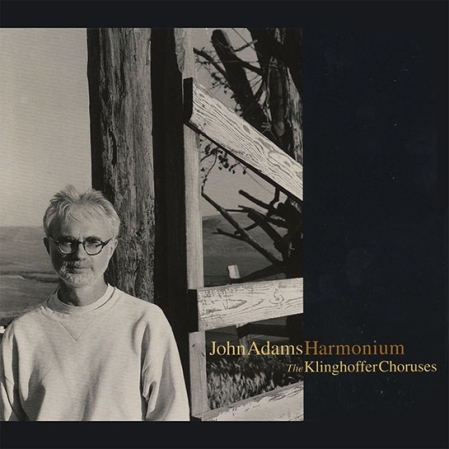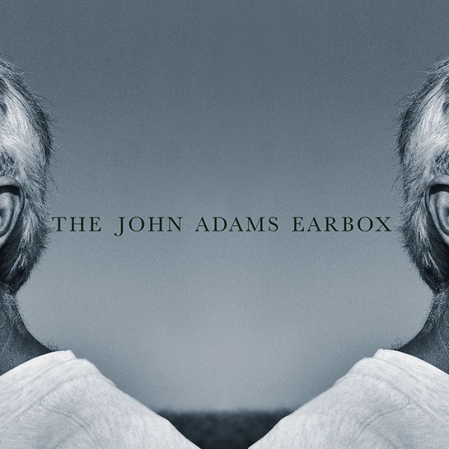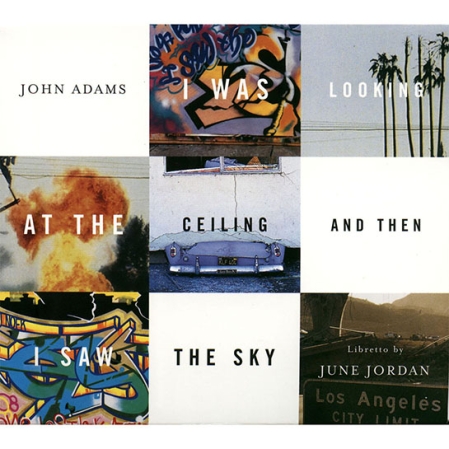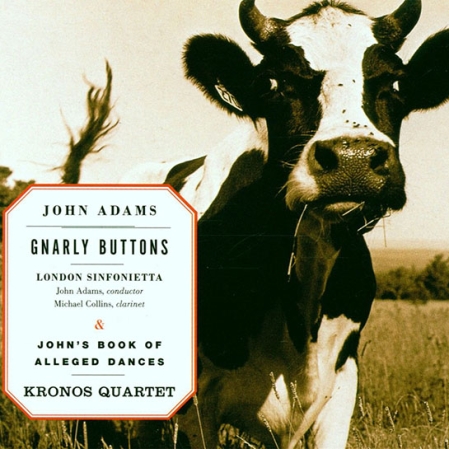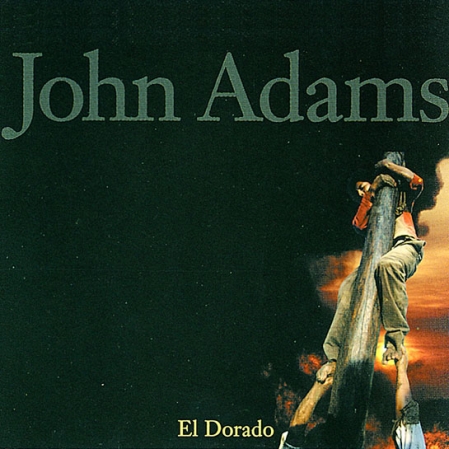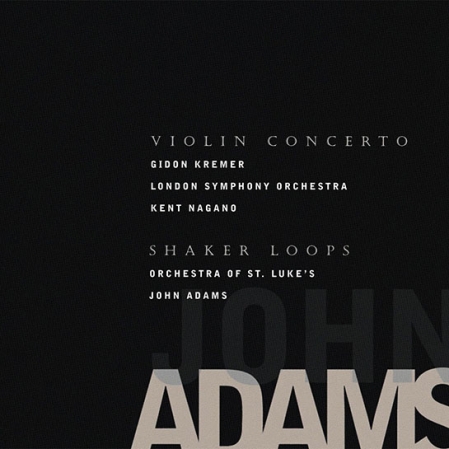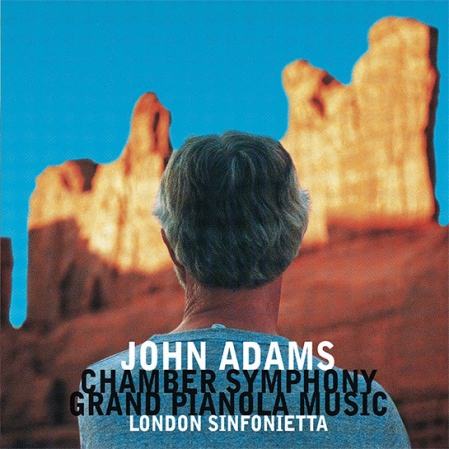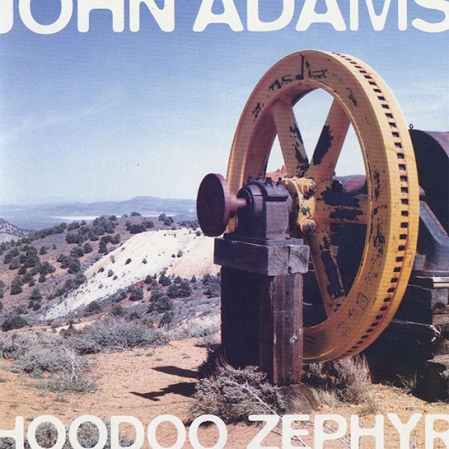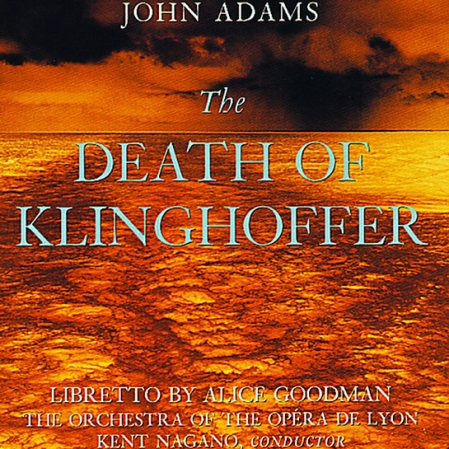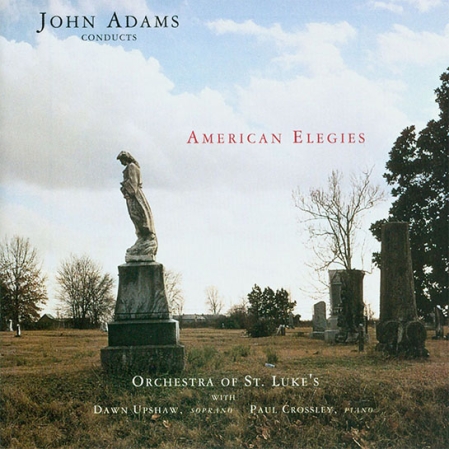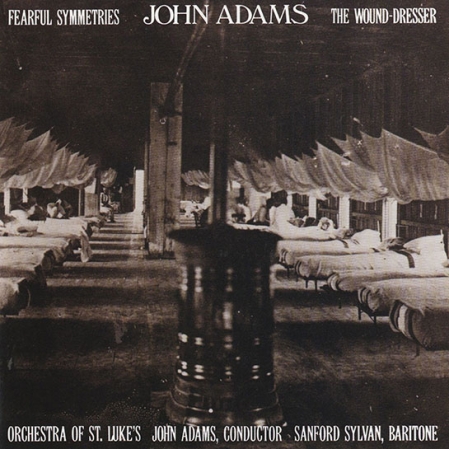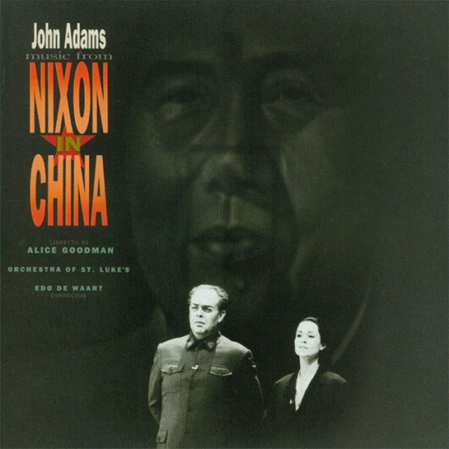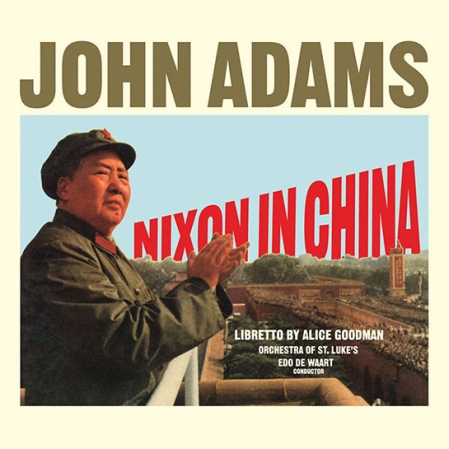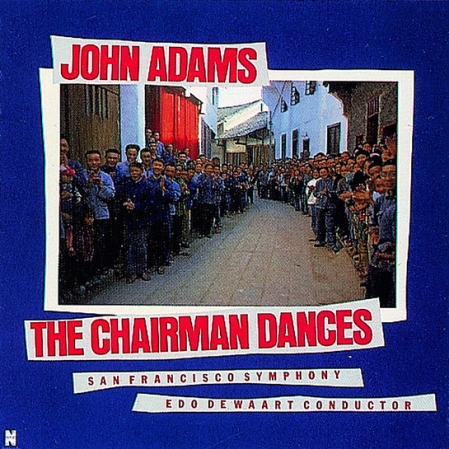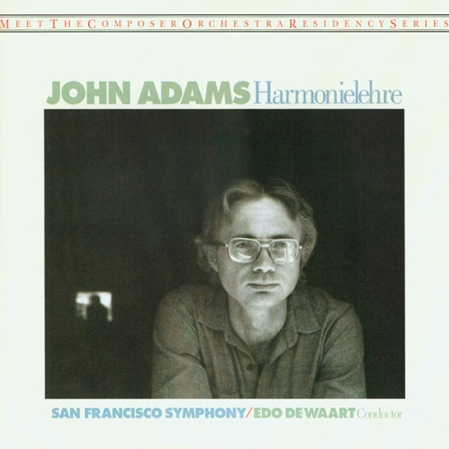Adams regards Harmonium, written in 1980, as a breakthrough work. The Boston Globe calls this recording “a glorious swirl of sound.” The Klinghoffer choruses, says the Globe, is “the most widely admired aspect” of The Death of Klinghoffer, the opera from which they are taken.
Composed in 1980 at the urging of Edo de Waart, then the San Francisco Symphony’s music director, Harmonium represents the beginning of a long and fruitful relationship between the Bay Area composer John Adams and the San Francisco Symphony. The work, dedicated to de Waart, received its premiere performance in April 1981 by the San Francisco Symphony, during their first season in Davies Symphony Hall, and was subsequently recorded in 1984 for ECM. It was re-recorded in 1997 for Nonesuch, Adams’s label since 1985, for inclusion in the 1999 release The John Adams Earbox, a 10-CD box set retrospective representing nearly all of the composer’s recorded output for the label till then. This recording of Harmonium, performed by the San Francisco Symphony and San Francisco Chorus (and the only one conducted by the composer) was made available for the first time on a single disc in 2000.
Harmonium, labeled “a glorious tribute to the American transcendentalist spirit” (San Francisco Examiner), is a three-movement piece that calls for large forces and sets texts by John Donne and Emily Dickinson. John Adams, in speaking of how he formulated his ideas for the piece, said, ”It began with a vast, empty space and, by means of a gentle unfolding, evolved into a rich, pulsating fabric of sound” (from the liner note by Michael Steinberg). In fact, the dynamic range of Harmonium is so broad that it was technically compromised in its first analog recording for LP.
Adams’s tenure with the San Francisco Symphony began in 1977 when he was appointed composer-in-residence, and his work with them continues today. The orchestra has since commissioned a number of important new works, including Grand Pianola Music (1982), Harmonielehre (1985), El Dorado (1990), and El Niño (A Nativity Oratorio), which premiered at the Châtelet in December 2000 and in San Francisco in January 2001. The significance of the Harmonium commission and Adams’s subsequent and sustained relationship with the orchestra cannot be underestimated. It has served as a model for the way composers and orchestras work in the United States today.
John Adams’s 1991 opera The Death of Klinghoffer, called “a work that fires the heart” (Newsweek), premiered in Brussels during the final weeks of the Gulf War in 1991, in a production by Peter Sellars. Cast in the form of a prologue, two acts, and an epilogue, it tells the story of the 1984 hijacking of the Italian cruise ship Achille Lauro by four Palestinian commandos,and the subsequent killing of one wheelchair-bound Jewish American passenger named Leon Klinghoffer. Adams, in his liner note for the release, says Alice Goodman’s libretto, “maintains without fail a tone of almost Biblical mystery and intensity.” The Choruses from The Death of Klinghoffer, often performed as a concert work, serve to support and articulate the story, standing apart from the action and adding, in the composer's words, “an important dramatic perspective to the more immediate and often violent emotional plane that framed the actual kidnapping story.”
PRODUCTION CREDITS
Harmonium:
Produced by Wilhelm Hellweg
Recorded March 1997 at Davies Symphony Hall, San Francisco, CA
Engineered by John Newton
Assistant Engineer: David Bowles
Mixed and edited at Sound/Mirror, Jamaica Plain, Mass.
Choruses from The Death of Klinghoffer:
Produced by John McClure
Recorded April and July 1991 at Auditorium Maurice Ravel, Lyon, France
Balance Engineer: John Newton
Recording Engineer: Henk Jansen
Recording and Editing Engineer: Everett Porter
Stage Sound Design: Jonathan Deans
Stage Production Sound Engineer: Graham Carmichael
Audio Assistant: Susan Presson
Production Coordinator: Kathryn King
Kent Nagano appears courtesy of Virgin Records
Mastered by Robert C. Ludwig at Gateway Mastering Studios, Portland, ME
All compositions by John Adams
Design by John Heiden for SMOG
Cover photograph by William Clift
Executive Producer: Robert Hurwitz
79549
MUSICIANS
Harmonium:
San Francisco Symphony, conducted by John Adams
San Francisco Symphony Chorus, directed by Vance George
Choruses from The Death of Klinghoffer:
Orchestra of the Opéra de Lyon, conducted by Kent Nagano
The London Opera Chorus, directed by Richard Cooke
